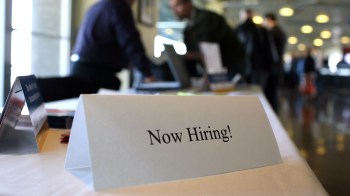The World Bank may not have anticipated the Arab Spring uprisings, but they claim to have a plan for the future. They’ve announced billions of dollars in support for Egypt and Tunisia over the next few years in order to stabilize and modernize their economies. They say there are a few key areas for developing a sustainable job market in the region, and large among them is promoting an active private sector.
We recently spoke about those efforts with Magdi Amin, Manager for Investment Climate at the World Bank Group’s International Finance Corporation. Amin suggests that the private sector is key to Egypt’s path towards achieving the social and economic reforms that people are demanding.
“When you really look at the situation now, a lot of people have looked at reform of the private sector in general and sort of associated it with some of the problems of the past. But if you really look carefully, you see the private sector playing an important role in delivering public services and creating jobs, and, certainly, there’s no way forward unless you re-empower the private sector.”
For Amin and the IFC, revamping the private sector means shortening the waiting period for establishing new businesses and making finance available to emerging companies. Yet, many of the “inclusive businesses” the IFC is hoping to develop have a two-fold purpose: to stimulate the economy and to improve the quality of life in the region.
“We’re talking about a form of business that has both a commercial objective but also a social impact–that they exist not only just to make profits they exist to serve a need in society.”
Further, many operations that the IFC is hoping to stimulate, such as recycling waste, delivering water to low-income parts of the country and producing handicrafts for export, actually began as the work of NGOs. According to Amin, the hope is that, by promoting new local businesses, Egypt can work towards addressing some of the region’s challenges:
“There’s a very broad agenda here [in Egypt], where the private sector can play a very important role, not only restoring growth and creating jobs, but also creating the kind of social services that people in Tahrir Square were clearly demanding.”
With fresh money and heightened demands for accountability, the leadership has the chance to work for the public wellbeing. After all, isn’t that what’s at stake?
There’s a lot happening in the world. Through it all, Marketplace is here for you.
You rely on Marketplace to break down the world’s events and tell you how it affects you in a fact-based, approachable way. We rely on your financial support to keep making that possible.
Your donation today powers the independent journalism that you rely on. For just $5/month, you can help sustain Marketplace so we can keep reporting on the things that matter to you.


















